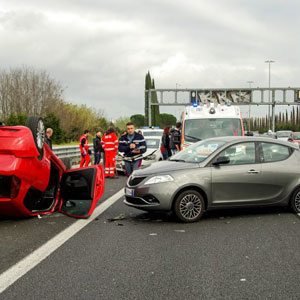
Child custody is often the stickiest issue in family law cases. The custody determination impacts both parents in very personal ways. If you are facing a divorce or paternity lawsuit, you probably share some of these concerns: Wouldn’t I be the better parent? Will my relationship with my child suffer if I don’t custody? Living on my own will be…Read More

From a legal standpoint, every personal injury case has two main issues: (1) liability; and (2) damages. Your attorney will be evaluating both of these issues at all phases of representation, starting from the moment you have your initial meeting. The “liability” aspect of the case is concerned with, “who is at fault?” It is answering the necessary question of who caused…Read More

DOG-OWNER LIABILITY IN INDIANA According to the Humane Society of the United States, pet ownership has tripled in our country since the 1970’s, and as of 2012, 62% of all American households now own pets. Of those, 47% own at least one dog. (Pets By the Numbers, Humane Society of the United States, January 20, 2014). So, with essentially half the…Read More

– INDIANA COURT OF APPEALS RULES THAT NEW EVIDENCE MUST BE PRESENTED TO JUSTIFY RE-ISSUANCE OF PROTECTIVE ORDER AFTER IT EXPIRED In Indiana, under the Civil Protective Order Act under I.C. § 34-26-5, a local trial court can issue a domestic order of protection (often referred to as a “protective order”) under procedures and for reasons specific to domestic relations cases. It…Read More

In today’s world, it is increasingly common for kids to be raised other than biological parents. Sometimes this is done informally. This is most common when parents get sick, become incarcerated, cope with addiction issues, or simply are having a difficult time serving as parents. They may reach out to their own parents, other relatives, or trusted friends to take their…Read More

These days we are seeing an increase in the need for guardianships. There are several factors that possibly contribute to this. One factor is that through medical advancements people generally are living longer. In many cases, extended life does not equate to extended quality of life, or extended capabilities. It is only an extended life. Many who are living longer…Read More

Many clients will schedule an appointment, stating that they want to talk about setting up a will or a trust to plan for the future. They often cite the desire to make sure their “things are in order” or to make sure that “there are no problems” when they are gone. Making known your wishes and minimizing complications are appropriate…Read More